-
 Bitcoin
Bitcoin $107,443.3008
-1.17% -
 Ethereum
Ethereum $2,494.2503
-0.63% -
 Tether USDt
Tether USDt $1.0003
0.00% -
 XRP
XRP $2.2496
2.23% -
 BNB
BNB $658.7569
0.63% -
 Solana
Solana $154.9826
1.94% -
 USDC
USDC $1.0000
0.01% -
 TRON
TRON $0.2799
1.07% -
 Dogecoin
Dogecoin $0.1659
-1.78% -
 Cardano
Cardano $0.5745
0.25% -
 Hyperliquid
Hyperliquid $39.7005
0.13% -
 Bitcoin Cash
Bitcoin Cash $519.5989
3.78% -
 Sui
Sui $2.7874
-2.40% -
 Chainlink
Chainlink $13.3762
-1.69% -
 UNUS SED LEO
UNUS SED LEO $9.0784
-0.64% -
 Avalanche
Avalanche $17.9846
-2.81% -
 Stellar
Stellar $0.2390
-0.06% -
 Toncoin
Toncoin $2.9028
0.25% -
 Shiba Inu
Shiba Inu $0.0...01147
-2.17% -
 Litecoin
Litecoin $86.6956
-1.27% -
 Hedera
Hedera $0.1508
-0.50% -
 Monero
Monero $322.6222
3.26% -
 Polkadot
Polkadot $3.4124
-2.99% -
 Dai
Dai $0.9999
0.00% -
 Bitget Token
Bitget Token $4.5434
-1.97% -
 Ethena USDe
Ethena USDe $1.0002
0.00% -
 Uniswap
Uniswap $7.1562
-2.61% -
 Aave
Aave $275.8830
-1.02% -
 Pepe
Pepe $0.0...09790
-4.04% -
 Pi
Pi $0.5018
-5.09%
How to find my crypto wallet address?
A crypto wallet address is a unique alphanumeric identifier used to send and receive digital assets securely on a blockchain network.
Jul 01, 2025 at 11:07 am
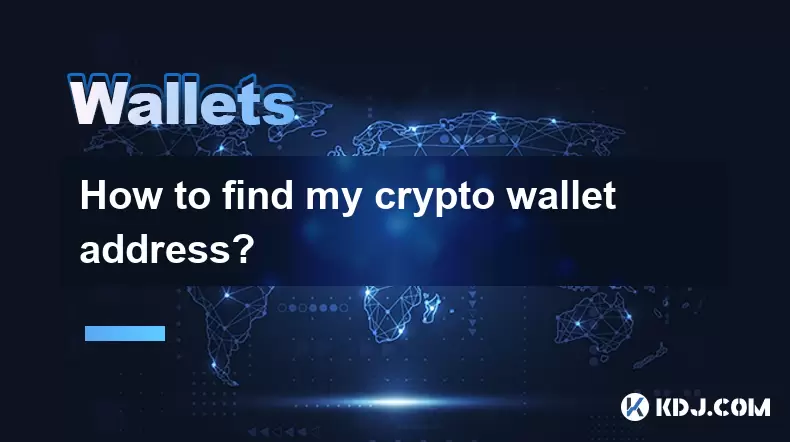
Understanding What a Crypto Wallet Address Is
A crypto wallet address is a unique alphanumeric identifier that represents your account on a blockchain network. It functions similarly to an email address, allowing you to receive cryptocurrencies like Bitcoin, Ethereum, or other tokens. Each wallet address is associated with a private key, which grants access to the funds stored at that address. Without knowing your wallet address, you won't be able to send or receive digital assets securely.
It's crucial to understand that while a wallet address can be shared publicly for receiving funds, the corresponding private key must remain confidential. Mistakes in copying or sharing the wrong address can lead to irreversible loss of funds. Therefore, verifying your wallet address before any transaction is essential.
Types of Wallets and Their Interface Differences
There are several types of cryptocurrency wallets—software wallets (mobile/desktop), hardware wallets, paper wallets, and web-based wallets—each with a different way of displaying your wallet address.
- Mobile wallets such as Trust Wallet or Coinbase Wallet typically show your wallet address directly on the home screen.
- Desktop wallets like Electrum or Litecoin Core may require navigating through menus or clicking on specific tabs to view the address.
- Hardware wallets such as Ledger or Trezor usually display the wallet address via their connected apps or software interfaces after being unlocked.
- Web wallets offered by exchanges often hide the address behind a "Deposit" button or under the "Receive" section.
Regardless of the type, the process generally involves locating a "Receive" function or checking account details where your wallet address will be displayed, often in both text and QR code formats.
Finding Your Wallet Address in Mobile Applications
If you're using a mobile crypto wallet app, follow these steps to locate your wallet address:
- Open the wallet application on your smartphone.
- Tap on the specific cryptocurrency you want to receive.
- Look for a button labeled "Receive" or "Request".
- Upon tapping, the app will display your wallet address along with a QR code.
- You can copy the wallet address manually or scan it using another device.
Some mobile wallets allow you to manage multiple addresses for the same coin. In such cases, ensure you’re viewing the correct one before initiating a transaction. Always double-check the copied wallet address for any typos or missing characters before sending or receiving funds.
Locating Your Wallet Address on Desktop Wallets
For users who prefer desktop applications, finding the wallet address might involve slightly more navigation compared to mobile apps. Here’s how you can find it:
- Launch the desktop wallet software.
- Wait for the blockchain synchronization to complete (this may take some time depending on the coin).
- Navigate to the "Receive" tab or "Addresses" section.
- Click on "New Address" if needed, or select an existing one.
- The displayed string is your wallet address; copy it carefully.
In certain desktop wallets like Electrum or Bitcoin Core, you may need to unlock the wallet with your passphrase before accessing the wallet address. Also, some wallets provide extended options like labeling the address for easier identification later.
Identifying Your Wallet Address Using Hardware Wallets
Hardware wallets offer the highest level of security but have a slightly different process for retrieving your wallet address:
- Connect your hardware wallet (e.g., Ledger Nano or Trezor) to your computer or phone.
- Open the associated software or app (Ledger Live, Trezor Suite).
- Unlock the device using your PIN.
- Navigate to the "Receive" option within the app.
- The screen on the hardware wallet will display your wallet address, confirming its authenticity.
Never trust third-party tools or websites claiming to generate your wallet address based on seed phrases or public keys. Always verify the wallet address directly through trusted wallet platforms to avoid phishing or scams.
FAQ: Frequently Asked Questions About Finding Wallet Addresses
Q1: Can I change my wallet address?
Yes, most wallets allow you to generate new wallet addresses for each transaction. This enhances privacy and reduces the risk of tracking. However, old addresses still remain valid and can continue receiving funds.
Q2: Why does my wallet address keep changing?
Many wallets automatically generate a new wallet address after each transaction for enhanced privacy and security. This practice helps prevent others from tracking your transaction history.
Q3: How many wallet addresses can I have?
You can create unlimited wallet addresses depending on the wallet software. Most modern wallets support generating hundreds or even thousands of addresses without performance issues.
Q4: Can two wallets have the same wallet address?
No, each wallet address is uniquely generated using cryptographic algorithms, making duplication statistically impossible. If you encounter what appears to be a duplicate, it’s likely a reused address rather than a true duplicate.
Disclaimer:info@kdj.com
The information provided is not trading advice. kdj.com does not assume any responsibility for any investments made based on the information provided in this article. Cryptocurrencies are highly volatile and it is highly recommended that you invest with caution after thorough research!
If you believe that the content used on this website infringes your copyright, please contact us immediately (info@kdj.com) and we will delete it promptly.
- Bitcoin, Bitfinex, and Acceleration: Decoding the Crypto Crossroads
- 2025-07-01 12:50:11
- SOL, XRP, LTC ETFs: Are We on the Cusp of Crypto History?
- 2025-07-01 12:50:11
- BNB Chain's Maxwell Upgrade: Sub-Second Blocks and a Whole Lotta Speed!
- 2025-07-01 13:10:12
- Bitcoin, Ethereum, Crypto Decline? Nah, Just a New York Minute!
- 2025-07-01 13:10:12
- Coinpass: The Gold-Standard Crypto Platform for UK Businesses
- 2025-07-01 12:30:12
- TradFi Meets Onchain: Banking Experiences Reimagined
- 2025-07-01 13:30:12
Related knowledge
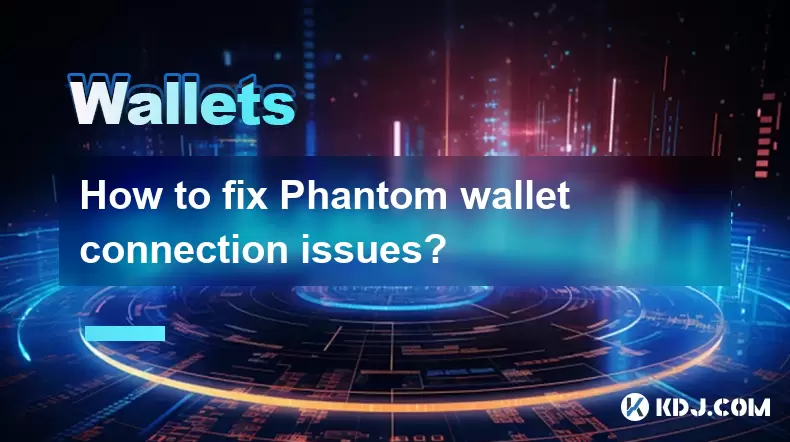
How to fix Phantom wallet connection issues?
Jul 01,2025 at 02:21pm
Understanding Phantom Wallet Connection IssuesPhantom wallet is one of the most popular non-custodial wallets for interacting with Solana-based decentralized applications (dApps). However, users occasionally face connection problems when trying to link their wallet to a dApp or platform. These issues can manifest as error messages, failed connection att...
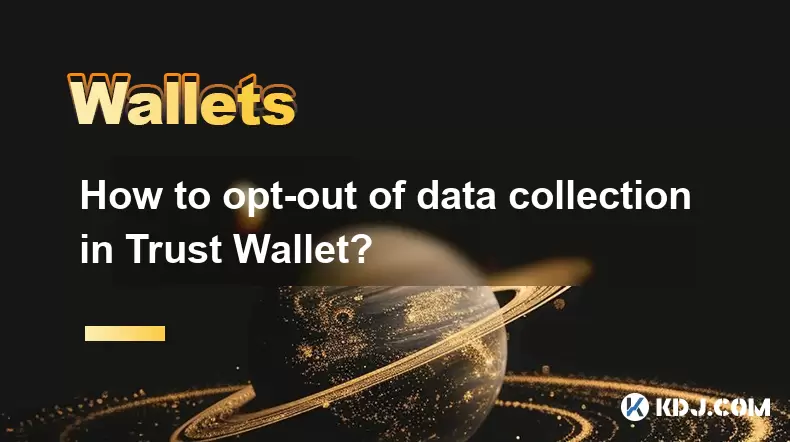
How to opt-out of data collection in Trust Wallet?
Jul 01,2025 at 12:22pm
Understanding Data Collection in Trust WalletTrust Wallet, a popular mobile cryptocurrency wallet, collects certain types of data to enhance user experience and ensure the security of transactions. This data may include device information, usage patterns, crash reports, and anonymous analytics. While Trust Wallet emphasizes that it does not store privat...
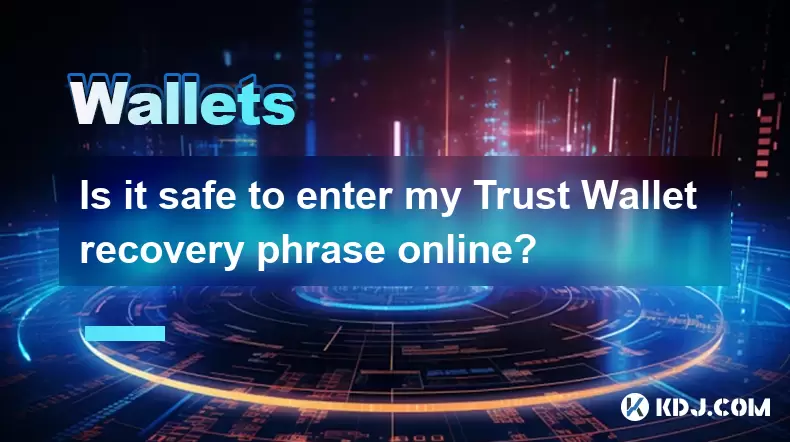
Is it safe to enter my Trust Wallet recovery phrase online?
Jul 01,2025 at 11:42am
Understanding the Role of a Recovery Phrase in Trust WalletA recovery phrase, also known as a seed phrase, is a sequence of 12 or 24 words generated during the initial setup of your Trust Wallet. This phrase acts as the ultimate backup to your wallet and grants access to all your funds stored within it. It is essentially the master key to your digital a...
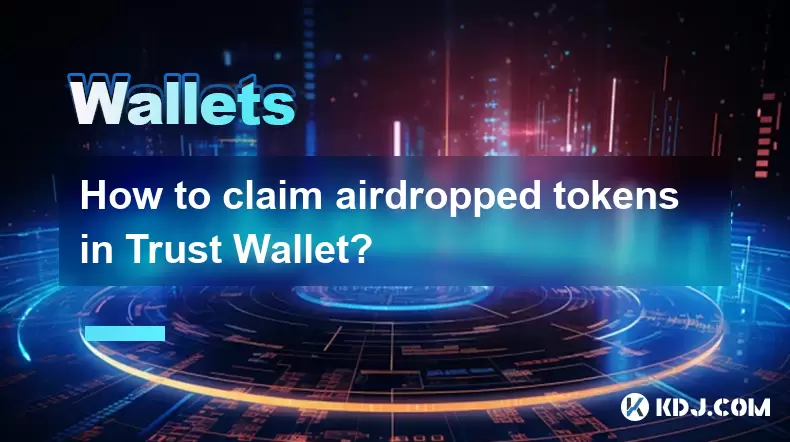
How to claim airdropped tokens in Trust Wallet?
Jul 01,2025 at 12:29pm
What Is an Airdropped Token?An airdropped token is a type of cryptocurrency distributed for free to wallet addresses, often as part of a marketing strategy or blockchain project launch. These tokens are typically sent automatically to eligible wallets or require users to complete certain tasks before claiming them. Trust Wallet, being one of the most wi...
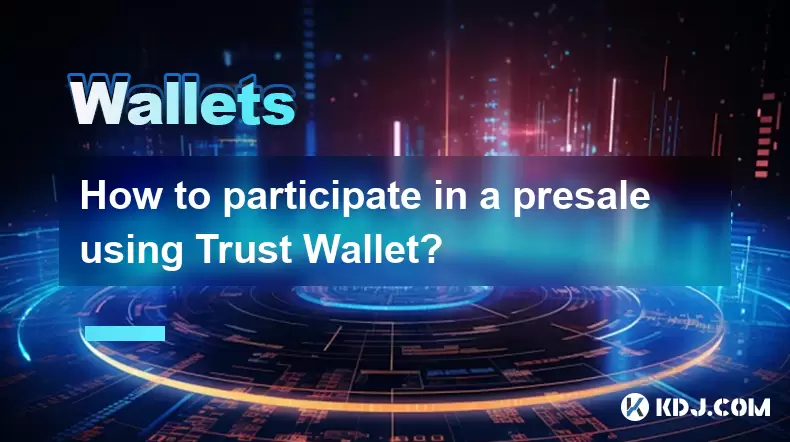
How to participate in a presale using Trust Wallet?
Jul 01,2025 at 01:35pm
What is a Presale in the Cryptocurrency Space?In the cryptocurrency industry, a presale refers to an early fundraising round where projects sell their tokens to a limited number of investors before launching on public exchanges. These events often offer discounted token prices and are considered high-risk due to the speculative nature of new blockchain ...
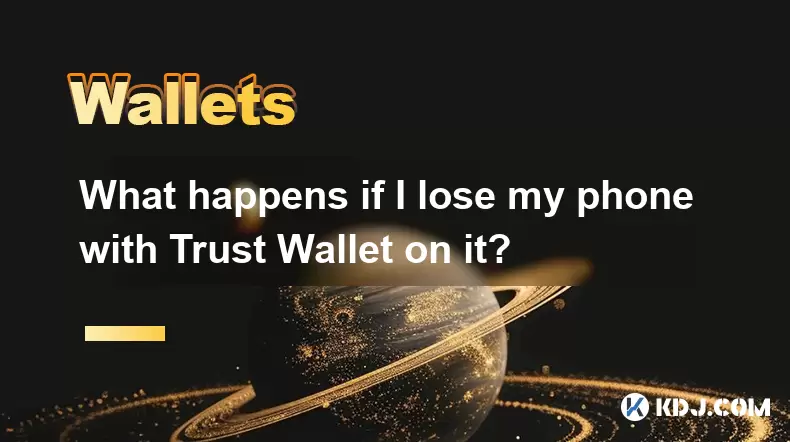
What happens if I lose my phone with Trust Wallet on it?
Jul 01,2025 at 10:03am
Understanding the Risks of Losing Your Phone with Trust WalletLosing your phone can be a stressful experience, especially if you use it to store digital assets through apps like Trust Wallet. The private keys and recovery phrases stored on your device are critical for accessing your cryptocurrencies, and losing access to them could result in permanent l...

How to fix Phantom wallet connection issues?
Jul 01,2025 at 02:21pm
Understanding Phantom Wallet Connection IssuesPhantom wallet is one of the most popular non-custodial wallets for interacting with Solana-based decentralized applications (dApps). However, users occasionally face connection problems when trying to link their wallet to a dApp or platform. These issues can manifest as error messages, failed connection att...

How to opt-out of data collection in Trust Wallet?
Jul 01,2025 at 12:22pm
Understanding Data Collection in Trust WalletTrust Wallet, a popular mobile cryptocurrency wallet, collects certain types of data to enhance user experience and ensure the security of transactions. This data may include device information, usage patterns, crash reports, and anonymous analytics. While Trust Wallet emphasizes that it does not store privat...

Is it safe to enter my Trust Wallet recovery phrase online?
Jul 01,2025 at 11:42am
Understanding the Role of a Recovery Phrase in Trust WalletA recovery phrase, also known as a seed phrase, is a sequence of 12 or 24 words generated during the initial setup of your Trust Wallet. This phrase acts as the ultimate backup to your wallet and grants access to all your funds stored within it. It is essentially the master key to your digital a...

How to claim airdropped tokens in Trust Wallet?
Jul 01,2025 at 12:29pm
What Is an Airdropped Token?An airdropped token is a type of cryptocurrency distributed for free to wallet addresses, often as part of a marketing strategy or blockchain project launch. These tokens are typically sent automatically to eligible wallets or require users to complete certain tasks before claiming them. Trust Wallet, being one of the most wi...

How to participate in a presale using Trust Wallet?
Jul 01,2025 at 01:35pm
What is a Presale in the Cryptocurrency Space?In the cryptocurrency industry, a presale refers to an early fundraising round where projects sell their tokens to a limited number of investors before launching on public exchanges. These events often offer discounted token prices and are considered high-risk due to the speculative nature of new blockchain ...

What happens if I lose my phone with Trust Wallet on it?
Jul 01,2025 at 10:03am
Understanding the Risks of Losing Your Phone with Trust WalletLosing your phone can be a stressful experience, especially if you use it to store digital assets through apps like Trust Wallet. The private keys and recovery phrases stored on your device are critical for accessing your cryptocurrencies, and losing access to them could result in permanent l...
See all articles

























































































